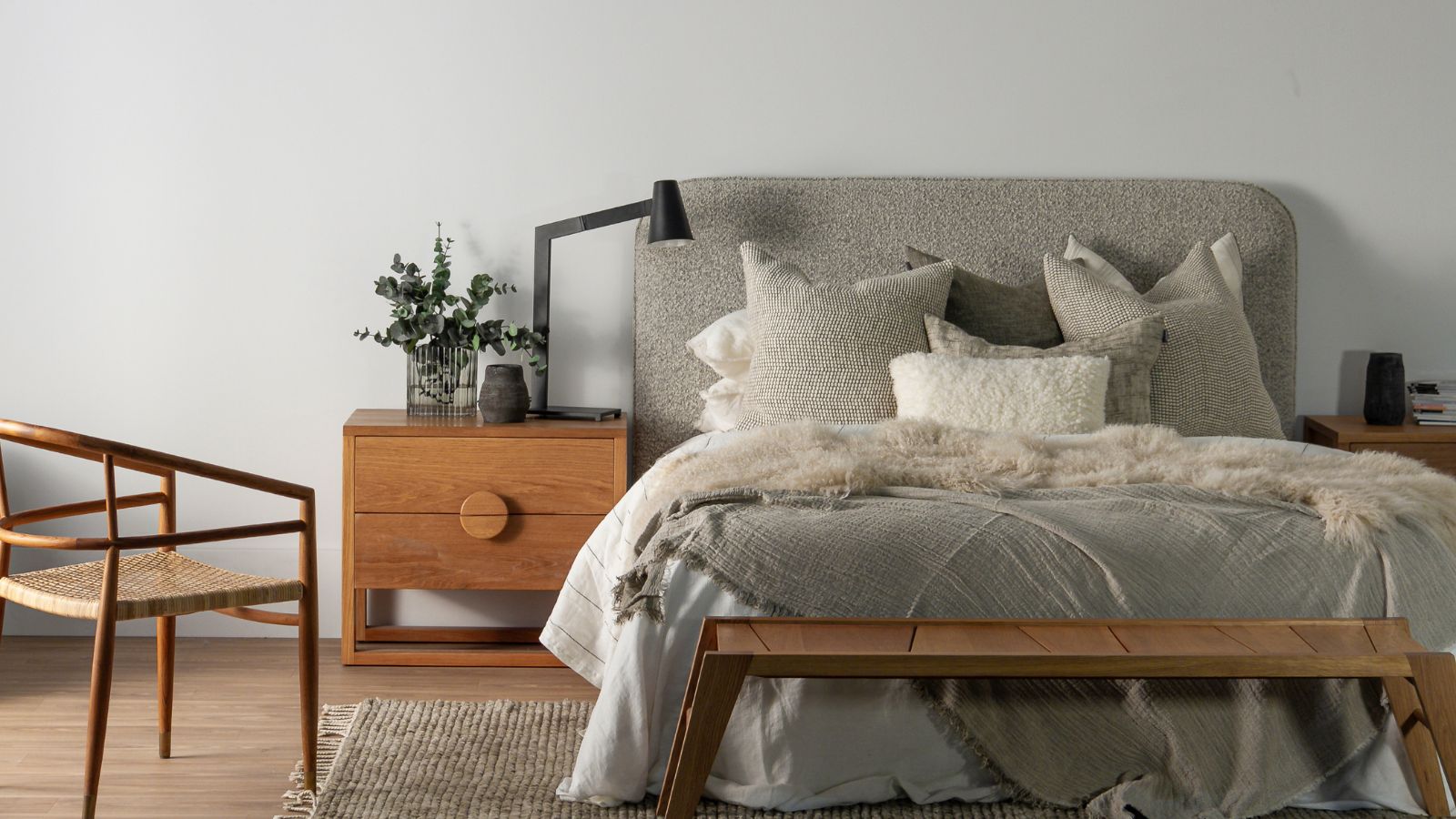
We have all had to experience some noisy neighbors or a less-than-quiet neighborhood at some point in our lives, and we understand the irritation of being unable to sleep.
If you need absolute peace and quiet for a good night’s rest, soundproofing your space may be the way forward.
These are the experts' six favorite bedroom soundproofing tips, both temporary and permanent, to help you sleep better without noisy disruptions.
How to soundproof a bedroom
Whether you are working on your own bedroom, or upgrading your guest bedrooms, soundproofing is a great way to create a secure sleep sanctuary, with some solutions even helping you to improve your bedroom for under $100.
1. Add extra insulation to windows
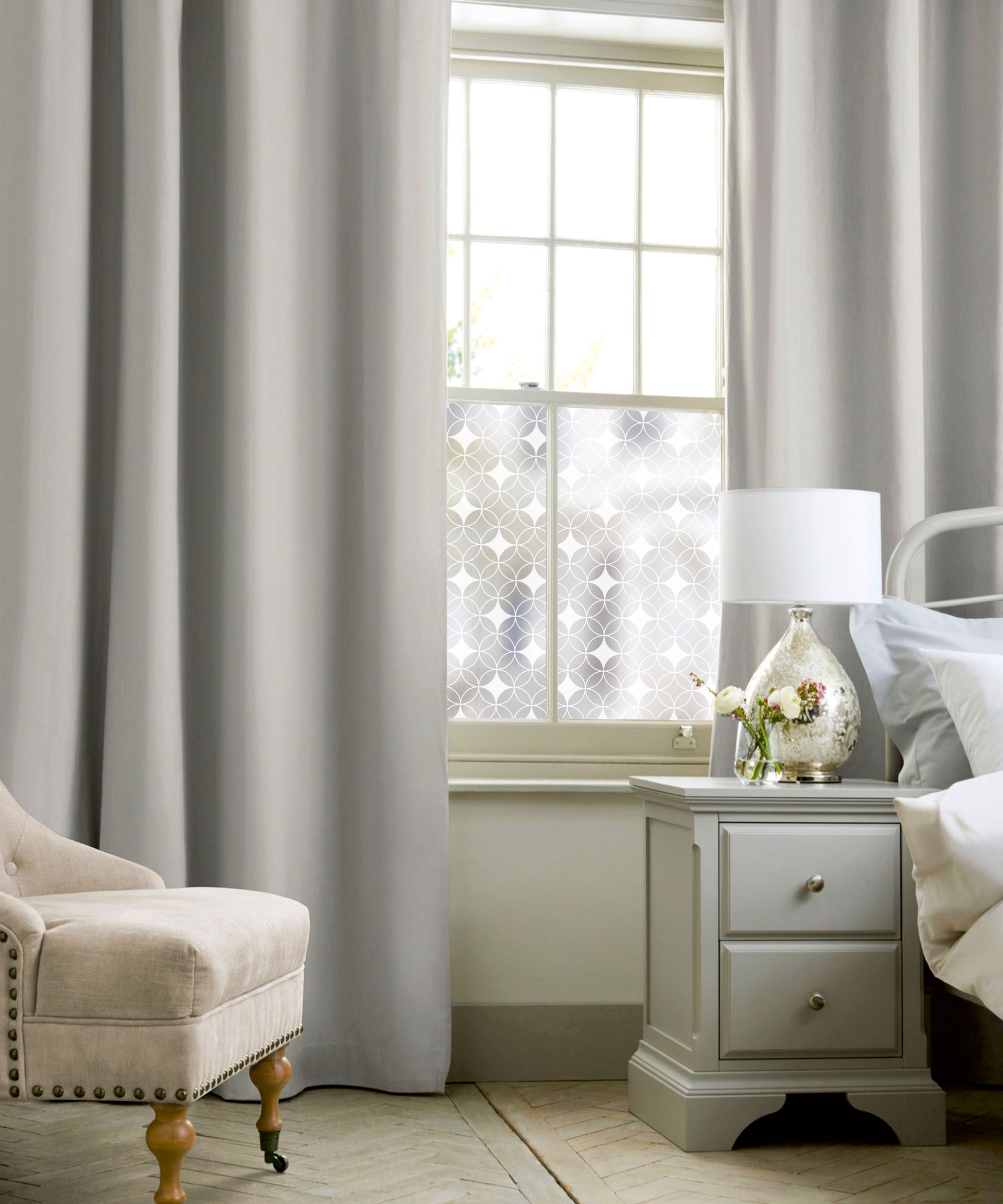
Insulation is not just good for keeping a home warm without turning up the heat, adding insulation to our windows can significantly reduce noise transfer from outside, says Tyler Hadley, of DDS Acoustical Specialties – especially if you replace single-pane windows with something thicker:
‘For windows, many cases have single pane, thin glass which has a low STC (Sound Transmission Class) rating. Since more mass blocks more sound, replacing the window with heavier glass blocks more noise. Additionally, multiple glass panes of varying thickness also increase the STC rating of the window.
‘To save money and time, acoustic glass window inserts are a simple product that can be installed over existing windows. Essentially, adding another layer of glass with gaskets on the perimeters to block more noise.’
2. Use thick materials to dampen sound and echoes
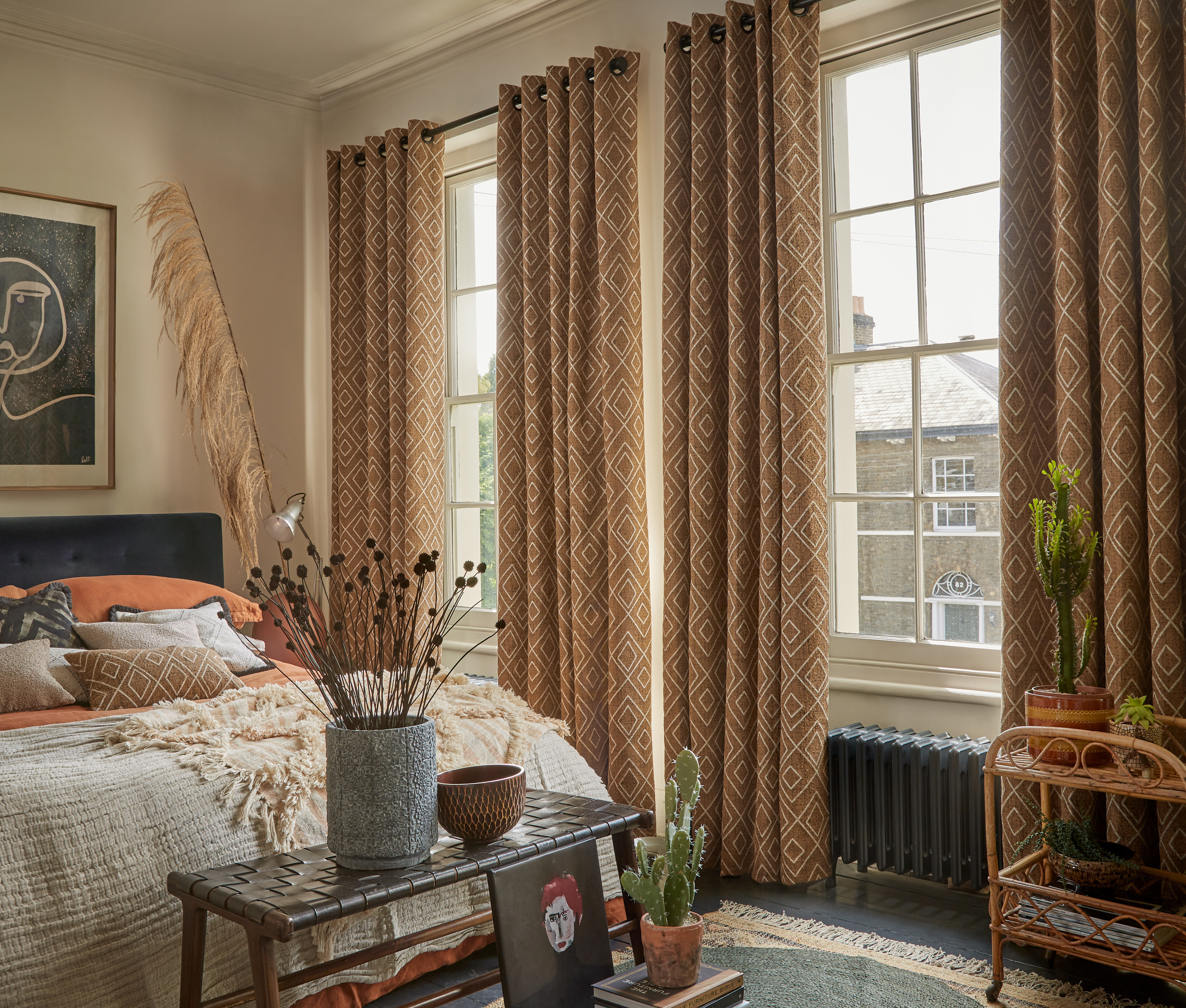
Layering in interior design is another insulating tip that can both make a bedroom feel cozy, reduce echoes, and block noise to help improve your sleep.
Artem Kropovinsky, interior designer and founder of Arsight, suggests embracing thick carpets, heavy drapes, and thick wall hangings. ‘Their soft textures naturally dissipate sound, bringing silence along with warmth,’ he explains. ‘Heavy drapes and wall hangings also do more than beautify. With layers, they act as barriers, reducing how much sound can travel through walls and around your space.’
These additions can also make a bedroom feel warmer without heating, making them a great addition year-round.
3. Add permanent wall panels to create a sound barrier
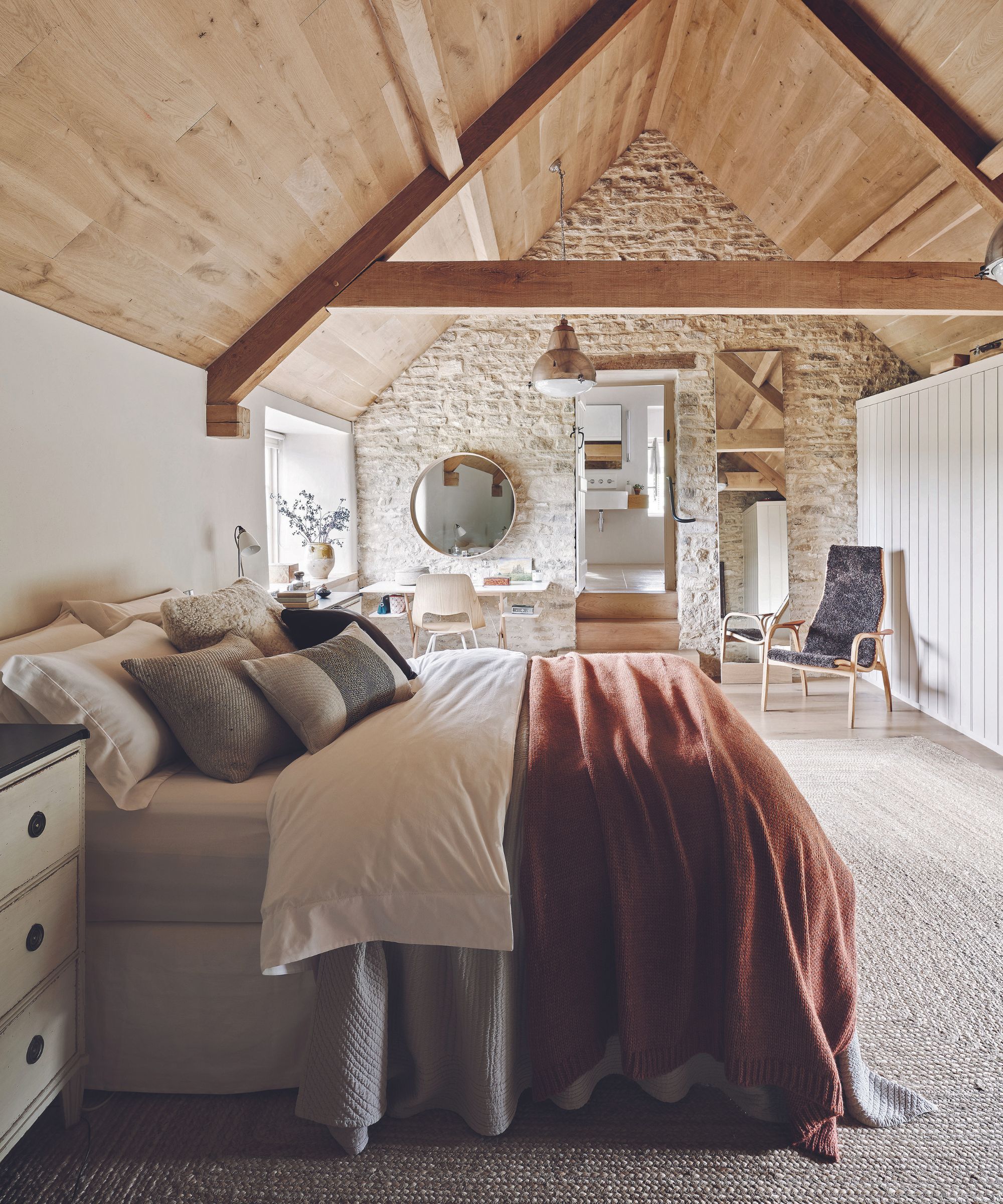
If you are looking for a more permanent soundproofing solution for your bedroom and don't mind some construction to achieve results, Tyler Hadley, of DDS Acoustical Specialties, recommends planning a home addition in the form of internal wall panels to block noise and insulate your home:
‘In some bedrooms, you might have thin drywall or plaster which wouldn't provide much mass. Walls can be a little trickier to treat but with some construction knowledge, it can be done. For existing rooms, the easiest thing to do would be to add a loaded vinyl noise barrier to the walls. This 1/8" thick material can either be installed directly to wood or metal studs or directly over existing walls and finished over. This can improve the wall STC rating to 50+ which is extremely good.’
4. Layer acoustic panels
If you don’t want to start tearing your walls apart, then stick-on wall decor panels or ceiling paneling may be a good alternative if you don't mind the way they look around your bedroom, says Mohammed Ahmed, home expert at The Home Guidance.
‘These materials are specifically designed to absorb sound waves, preventing them from bouncing off the walls and echoing within the room.’
Typically, you have two options for these panels, Mohammed continues. ‘Acoustic panels often have a decorative touch, while acoustic foam might be more utilitarian in appearance.
‘Both are effective for absorbing mid to high-frequency sounds. While they won't completely block noise from entering a room, they will greatly reduce echoes and ambient noise within the space. This makes them great for both reducing incoming noise and ensuring that any sounds generated inside the room (like music or conversation) are more controlled.’
5. Close internal doors
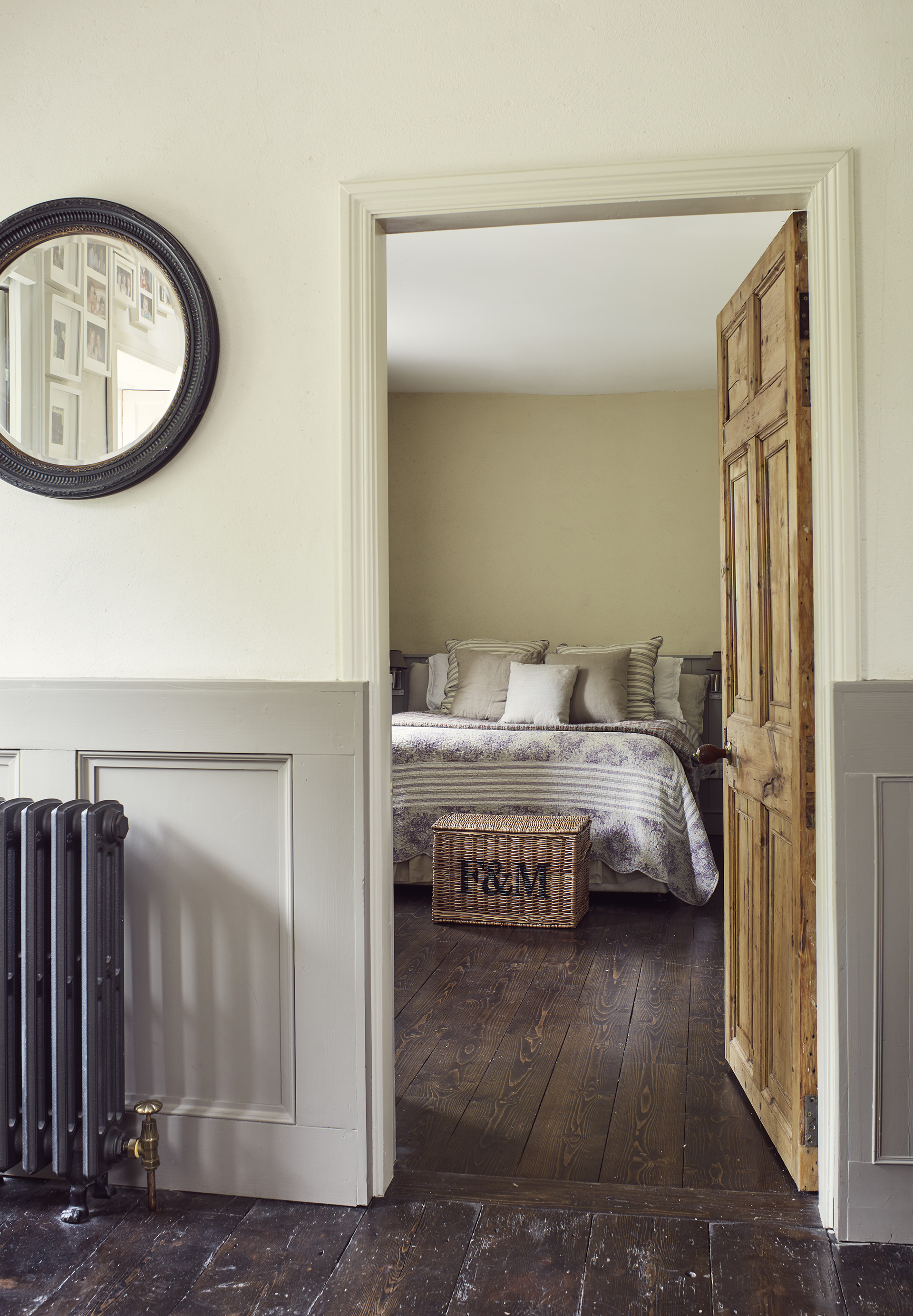
‘Simply closing a door can help keep sound where it belongs, but it will be most effective if it is a hinged door with a solid core,’ begins Jennifer Renaud, of Masonite – so it is probably not the best idea to replace doors with curtains. ‘If you still hear a blaring TV through a closed door while trying to sleep at night, you likely have a hollow core door. Sound travels more easily through a hollow core door, so choose a solid core door that is designed with more sound-dampening material.
‘Selecting the right doors is one of the easiest, most cost-effective methods of soundproofing a bedroom,’ she continues. ‘That’s because walls are generally insulated or layered with materials that help block sound – and doors are usually the thinnest barrier in a wall.’
6. Seal off gaps around windows and doors
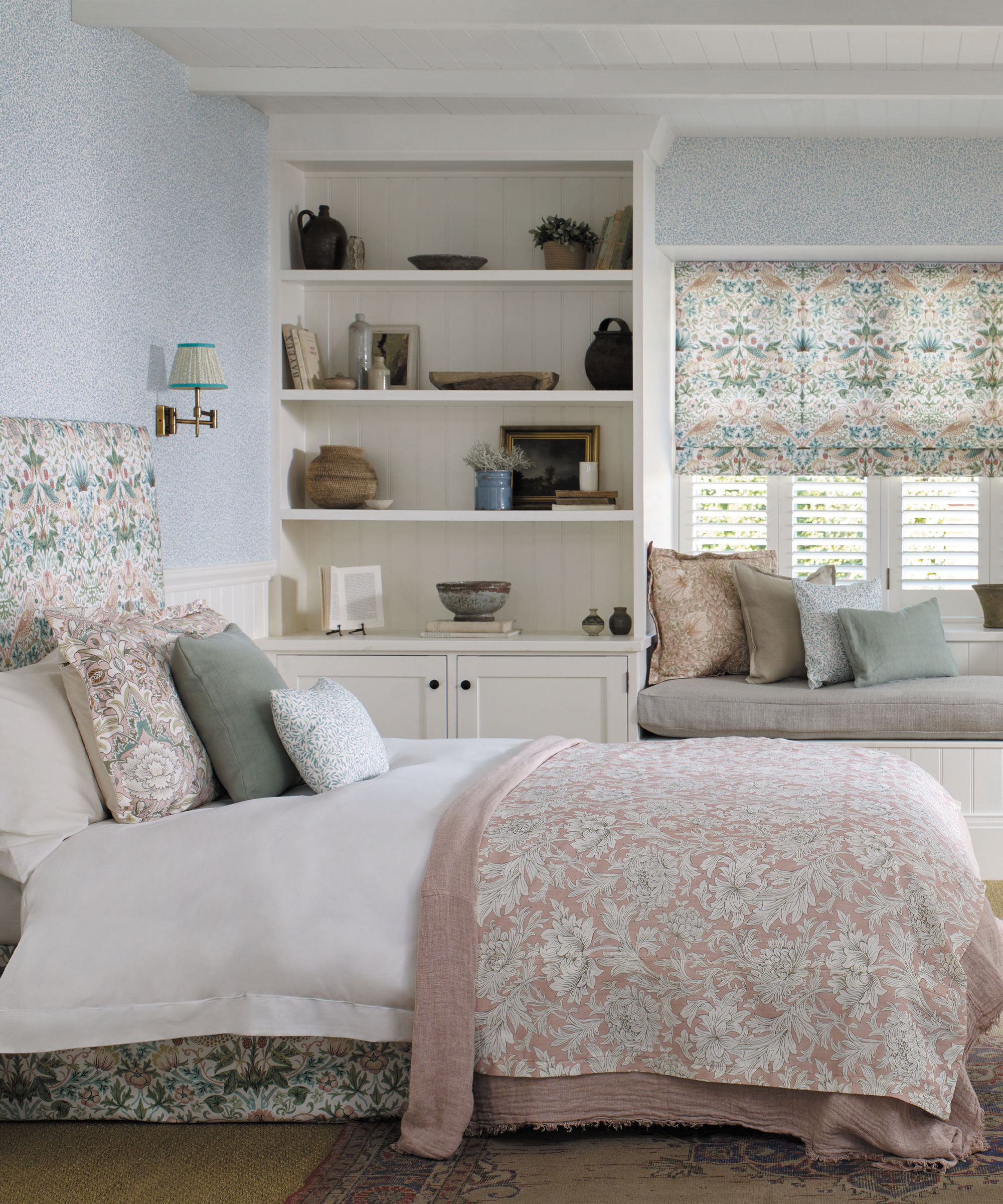
Draft-proofing tips are not just for keeping cold air out, weatherstripping works by sealing gaps and cracks around doors and windows, preventing sound from entering or escaping your bedroom, too, says Shlomo Cherniak, owner of Cherniak Handyman Services.
‘By creating a tighter seal, weatherstripping reduces noise transmission and improves sound insulation. It is a cost-effective solution that can be easily implemented by homeowners, but it is important to choose high-quality weatherstripping materials and ensure proper installation for optimal results.’
FAQs
Is it expensive to soundproof a room?
Soundproofing a room can vary massively in cost depending on how you approach the task. If you go for a permanent construction-focused approach, it can be rather pricey. Temporary solutions such as foam paneling and thick furnishing may be more budget-friendly, on the other hand, so there are plenty of options.
Can you make a room 100% soundproof?
It is possible to make a room 100% soundproof, but it will require a lot of construction and investment. What’s more, a completely soundproof room can feel unsettling to be in, as every noise is dampened and your ears and mind struggle to adjust. For this reason, it is best to avoid 100% soundproofing rooms around your residential home.
Whether you are blocking out neighbors' music, or are reducing rain noise to sleep soundly, these soundproofing tips are perfect for any bedroom space. If you are blocking out noise from other areas in your own home, remember to also add soundproofing measures to those spaces to fully reduce noise transfer.







